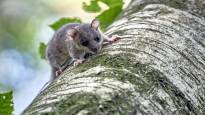Several plant and animal species suffer from climate change. In its report, the Nature Conservancy also mentions positive findings.
Riikka Kajander,
Yrjö Kokkonen
Britain’s largest nature conservation organization, the National Trust, has published his review to the nature events of the past year. According to the organization, the events caused by climate change have led to dramatic changes in the natural state of the country.
The past year has been exceptionally warm in Britain, as it has been widely in other parts of the world. The winter was dry and the summer very hot. Autumn was also warm, but rainy, when severe storms followed each other. According to the review, next year is predicted to be even warmer.
According to the National Trust, seasonal changes in Britain’s climate are weakening, confusing nature.
According to the organization, the changes may not seem big during the year, but over the course of a decade, the changes are very significant.
In its review, the organization has compiled a long list of plant and animal species that suffer from climate change.
When the long, cold periods of winter don’t materialize, for example the butterfly called the oak moth (Thaumetopoea processionea) becomes more common. Their larvae feed on oak. Animals that spend the winter in hibernation, such as sleeping owls, wake up too early and use their energy reserves unnecessarily.
There is also good news
The National Trust has made some positive observations. The European crow, which has disappeared from Cornwall for some time, has started to breed again. Merseyside found the first skunk (Epidalea calamita) larvae since 2020.
The large caterpillar beetle (Meloe proscarabaeus) is an oil beetle that has been spotted for the first time in nine years on the Staffordshire moors. The population of beavers has also increased in the Somerset region, the National Trust reports.
Beavers play an important role in the ecosystem when they build dams from the trees they fell and flood waterways.
It also tells about the report The Guardian magazine.
What thoughts does the article evoke? You can discuss the topic until Thursday at 11 p.m.
